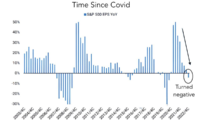US Stocks Slide on Specter of Recession in Europe: Markets Wrap
(Bloomberg) — US stocks notched the worst week since March as anxiety rose that central banks will have to ratchet interest rates higher to tamp down inflation. Bonds rallied on bets that excessive tightening will bring on sharp economic downturns.
Most Read from Bloomberg
The S&P 500 Index ended the shortened holiday week 1.4% lower while the Nasdaq 100 benchmark fell 1.3% as investors took profits from the year’s winning technology names. Chipmakers Marvell Technology Inc. and GlobalFoundries Inc. were among Friday’s laggards while drops in Microsoft Corp. and Nvidia Corp. weighed on the gauges.
The second-quarter stock rally — fueled by the frenzy for growth-oriented artificial intelligence stocks — is fraying under the threat of more rate hikes and fears that the full economic impact of aggressive central bank policy has yet to be felt.
Without the AI narrative, the stock market would have been “a lot rockier,” according to Linda Duessel, senior equity strategist at Federated Hermes.
“Underneath the surface, the average stock is only up a couple of percent year-to-date,” she told Bloomberg Television. “Portfolio managers have had a very difficult time beating the S&P this year.”
Federal Reserve Chair Jerome Powell dampened the mood this week when he said the US may need one or two more rate increases in 2023. Other Fed commentators pushed back against investor hopes for a rate cut this year: “I’d be comfortable with the information I have today, staying right where we are and just staying here through the rest of this year and long into next year,” Atlanta Fed President Raphael Bostic said at an event Friday.
Economic data from Germany and France ignited fears of a downturn in Europe, spurring Treasuries to take part in a global bond market rally as investors sought safe havens.
Read more: Global Bonds Rally as Data Fans Fears of a European Recession
Treasury Secretary Janet Yellen sought to temper concerns over a US recession, she acknowledged the risk and said a consumer-spending slowdown was needed. Meanwhile, the US manufacturing purchasing managers index fell to 46.3 in June from 48.4 the prior period, the lowest reading since December.
“There is consistency throughout the global economy in at least one regard — manufacturing remains in a recessionary mode,” Ian Lyngen at BMO Capital Markets said.
“Translating this to US monetary policy is much more challenging than it might be overseas,” he wrote in a note to clients. “We don’t think this data has immediate implications for the FOMC’s July decision — for that we’ll look to NFP and CPI. Nonetheless, it was a disappointing print.”
Read more: Global Economy Leans More on Consumers as Factory Lines Stutter
US Treasuries yields fell Friday, some by as much as 10 basis points. The inverted spread between the two- and 10-year bond widened to more than 1% — such inversions are considered a recessionary signal.
Scott Ladner, chief investment officer at Horizon Investments, said the bond rally was riven by “growth fears with European flash PMIs coming in soft this morning,” adding that there’s a bit of “breath-taking after the last few weeks of very strong risk-asset performance.”
Concern about the economic outlook was reflected in a rotation into bonds and out of stocks in weekly flow data. Investors yanked $5 billion from global equity funds in the week through Wednesday and added $5.4 billion to bonds.
US stocks face more downside than upside over the next two months as banks and property firms “still have bad recession vibes,” according to the note from Bank of America strategists citing EPFR Global data.
The US dollar and gold futures climbed. Bitcoin headlined a rally in cryptocurrencies as it jumped to its highest level in a year.
Some of the main moves in markets:
Stocks
-
The S&P 500 fell 0.8% as of 4 p.m. New York time
-
The Nasdaq 100 fell 1%
-
The Dow Jones Industrial Average fell 0.6%
-
The MSCI World index fell 1%
Currencies
-
The Bloomberg Dollar Spot Index rose 0.4%
-
The euro fell 0.6% to $1.0891
-
The British pound fell 0.2% to $1.2719
-
The Japanese yen fell 0.5% to 143.80 per dollar
Cryptocurrencies
-
Bitcoin rose 2.5% to $30,904.63
-
Ether rose 0.8% to $1,902.27
Bonds
-
The yield on 10-year Treasuries declined five basis points to 3.74%
-
Germany’s 10-year yield declined 14 basis points to 2.35%
-
Britain’s 10-year yield declined five basis points to 4.32%
Commodities
-
West Texas Intermediate crude fell 0.3% to $69.30 a barrel
-
Gold futures rose 0.3% to $1,929.20 an ounce
This story was produced with the assistance of Bloomberg Automation.
–With assistance from Mark Tannenbaum, Michael Mackenzie, Denitsa Tsekova and Cecile Gutscher.
(A prior version corrected the index name for the Russell 2000.)
Most Read from Bloomberg Businessweek
©2023 Bloomberg L.P.
[ad_2]
Source link


